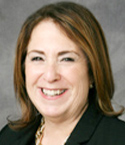| Hello and thank you to our existing members, and a warm welcome to those who have recently joined us. We hope this newsletter finds you well, and we look forward to seeing all of you in the coming year.
Recent Events
The committee co-hosted a panel with the Health Care Committee at the Annual Spring Meeting in Washington, D.C., titled, “Unique Asset Sale Issues in Health Care.” Our fantastic panelists included Lorie Beers (Intrepid; New York), David Gordon (Polsinelli; Atlanta), Rob Orr (Chapel Hill, N.C.) and Cynthia Romano (FTI Consulting, Inc.; New York). This panel discussed how health care sales differ from other asset sales under § 363, and the role of various “players,” including debtor’s counsel, financial advisors (for both debtor and any committee of unsecured creditors), investment bankers, indenture trustees and the bankruptcy court judge.
At the conclusion of the panel, the committee announced the winners of the Fifth Annual Asset Sale of the Year Award: Akorn Holding Company, LLC, with professionals from Proskauer, Vedder Price, K&L Gates, Ropes & Gray, AlixPartners, Landis Rath & Cobbs, Ankura, WilmerHale, Pachulski Stang Ziehl & Jones, Gibson Dunn, Kirkland & Ellis LLP and Troutman Pepper.
|










